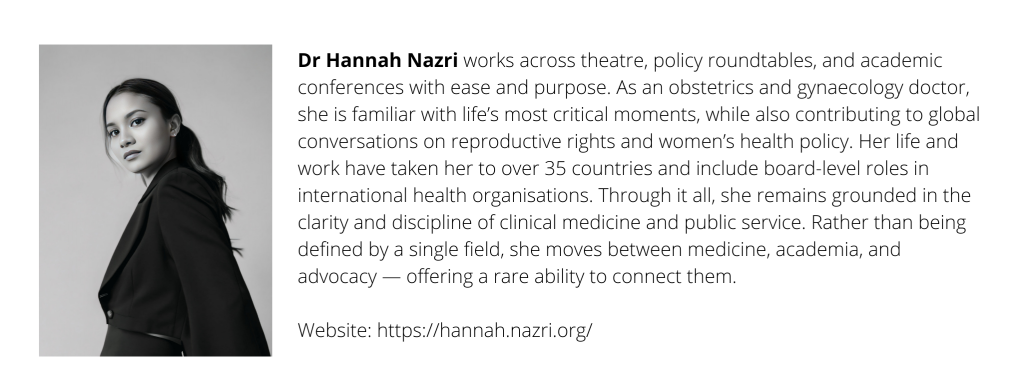Featured image by charlesdeluvio on Unsplash. This cute pug is disappointed that you are not disappointing enough people.
This year, I set clear goals for myself, and I am proud to say I achieved nearly all of them, both professionally and personally. This was not without its challenges – constant criticism for being “too young,” “too inexperienced,” “too junior,” or simply “just female,” alongside every other obstacle life tossed my way. I know I have likely disappointed many along the way – supervisors, colleagues, lovers, friends, acquaintances, and even some family – as I focussed on ticking off my own boxes. But I have learnt that a crucial part of success is being comfortable disappointing everyone except yourself. And this has definitely not come easy for me.
So, how do you learn to feel comfortable disappointing everyone?
Shut your ears to those naysayers and listen to me:
- You can never make everyone happy. I tried, year after year, to make everyone around me happy, at the expense of my own mental and physical health. But the truth is, chasing everyone else’s approval only leads to burnout. Instead of pouring energy into pleasing others, focus on what makes you happy. Find purpose in fulfilling your own goals, not everyone else’s expectations. Learn to appreciate the “gleamers” of your day rather than wishing for an everyday filled with fireworks, pomp and circumstance. Discover the little things that make you happy. Be cut-throat in eliminating people or things that no longer serve you. It is OK. Sometimes friendships have ran its course, the romance has fizzled out, life happens and we are all at different phases of life. Find out what is your 80/20.
- Understand what you want from life, and set your own key performance indicators. This means taking the time to know what is required of you professionally and figuring out how that aligns with your personal goals. If you do not take control of your own ambitions, your work will start to consume everything, leaving little space for the rest of your life. In this process, you also come to better understand your inner circle – family and close friends – and realise it is their happiness that truly matters, rather than trying to please everyone else. Even so, prioritise your own happiness first.
- Be comfortable with being seen as “stupid”. When you choose to follow your own path, people may misunderstand or think poorly of you, and that is OK. Often, it is simply because they cannot see the bigger picture you are working towards. For instance, when I decided not to pass my internal mock A-level exams many years ago, almost everyone – except the teachers I had explained my plans to – thought I was being reckless or lazy. I walked out of that exam hall after only writing my name because I wanted to give my focus on my AS-levels which were happening around the same times. It seemed “stupid” to others, but to me, it was strategic. I know my strengths, so I applied it accordingly. Similarly, I do not mind not having all the answers at hand during a handover because I know will learn them in time. You’d be surprised how many times people have implied I am somehow “stupid” or compared me unfavourably to other doctors in clinical settings. I have even been told, repeatedly and to my face, that I should not speak about endometriosis because I am “only” an expert on my DPhil thesis – not an authority on the entire field (I never claimed I was). There have also been times when I have been called “stupid” outright in emails, and I have let it go, taking it on the chin for the team. But you know what? Fixating over my “reputation” is not worth my energy. I am here to focus on the things that matter, not to waste time worrying about judgements that do not serve me. It is important to understand my limits and lack of knowledge so I can learn. Therefore, whether I am truly lacking in certain areas or being outright insulted by someone, I may burn with embarassment in that few minutes, but in 10 years time, these minor events will be a distant memory and I will be a lot wiser.
- Be selective with the feedback you receive and from whom you seek advice. Not everyone who offers you feedback or advice has your best interest. Sometimes, they simply want to put you down, make themselves look better, or have other ulterior motives. Often, their criticism stems from their own insecurities or a chip on their shoulder. Consider this: Would someone who has never pursued the path you aspire to follow really be the best advisor for your journey? While it is not an absolute rule as there can still be valuable insights to glean from their perspective, it is essential to remain mindful of the tone and context of their advice. Constructive feedback is essential for growth, and good advice typically begins with a genuine desire to understand your decision-making process rather than simply criticising or judging. They often extend their assistance to help you grow, offering support and resources to guide you in your development. This willingness to help reflects their genuine investment in your success.
- Realise the unique value you bring to the world. There is no one else who can contribute exactly as you can, in the way you do. Do not get pulled into playing by everyone else’s rules or seeking validation in their games. Approach life like it is yours to create, because it is. Those who measure their worth by the expectations of others often find themselves the unhappiest. You have to decide the value you bring to others; otherwise, society will make it up for you in the most unfair manner (because life is not fair). I have had people tell me that my “brand” should portray this and that on my social media, but excuse me, this is not a brand; this is a person; this is my life. I will contribute to the world on my terms. I am, afterall, a clinical academic, not a clinician and an academic, and everything else that I do, is just by and by. The tug of war between clinical and academic work is real and not for the faint-hearted. It is extremely difficult trying to balance learning surgical skills, producing scientific publications, and having a reasonable online presence for advocacy work.
- Do not engage in gossip – it is a waste of time. Focus on your own goals and let your actions speak for themselves. In the end, success is the best response. However, remember to work hard not just to prove a point, but because these goals are meaningful to you and reflect your aspirations.
- Be patient. Be kind to yourself. I will say this over and over again. Clinical mastery is hard. Balancing that with academic work is hard. You will make mistakes and may find yourself on the receiving end of insinuations about your intelligence. You must never let these sentiments to your head. If others are unkind to you, be kinder to yourself. Unfortunately, both areas are extremely hierarchical and come with their own sets of rules to navigate. While it is important to play by these established rules, do not hesitate to create your own as well. Forge a path that reflects your values and aspirations, allowing you to thrive in both realms.
In conclusion, this year has taught me that while I may have disappointed many – I have remained true to myself and my goals. The pursuit of others’ approval often leads to burnout, so it is essential to focus on what truly brings you joy and fulfilment. Embrace your unique contributions, be discerning about feedback, and do not shy away from being perceived as “stupid” for making choices that align with your values. Life is too short to be constrained by others’ judgements; instead, engage with your journey as the author of your own narrative. Ultimately, success is about pursuing your passions and aspirations, so be patient and kind to yourself, and remember that standing firm in who you are is the key to a meaningful life.
Related posts:
- The Heart of Success: Why Kindness Matters
- 4 Things I Learnt from My Burnout
- Green Templeton College Alumni Graduation Speech July 2024
- Breathless and Living My Wildest Dreams
- Building Resilience: Top 3 Tips for Success
- Building Resilience: Dealing with Grief and Failure for So-Called Type A Personalities
Like what you read? Subscribe to my blog.
About the Author: Hannah Nazri


